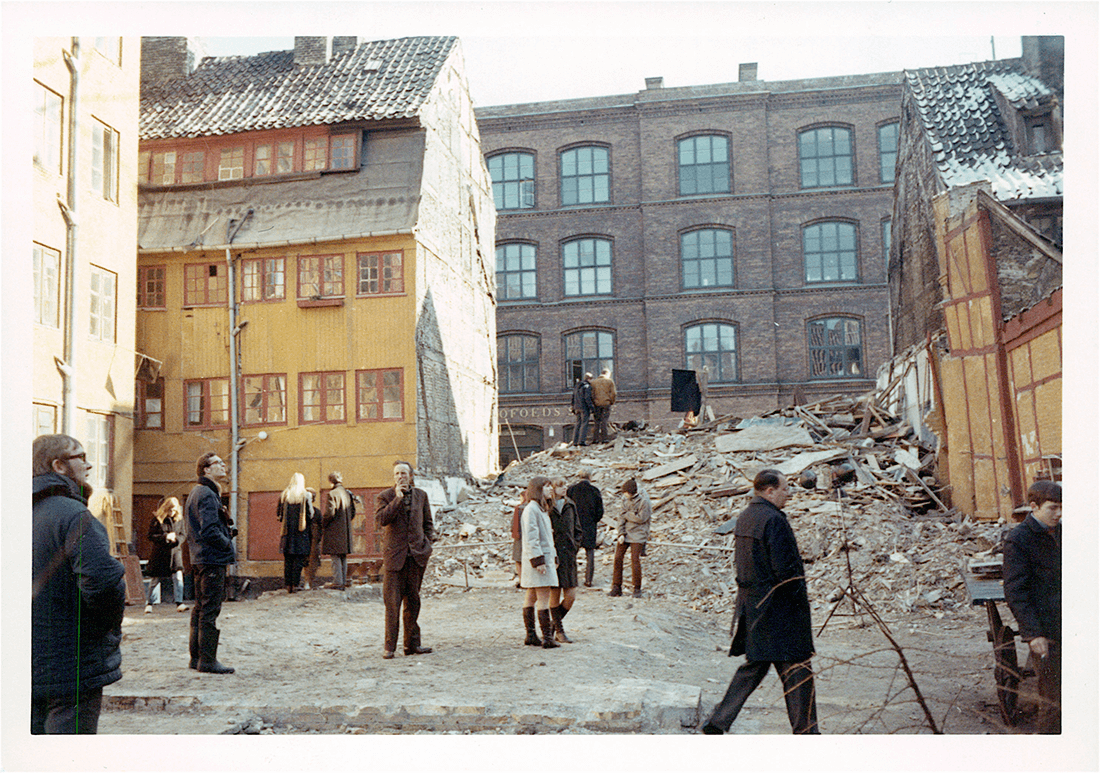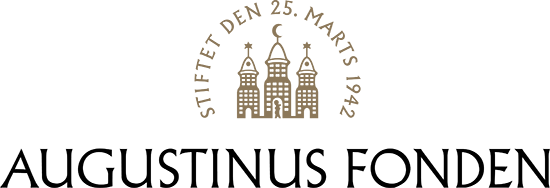Stories from Sofiegården: Alternative Forms of Living in Copenhagen as Cultural Heritage
This research project aims to nuance the understanding of spatial practices in Denmark’s post-war welfare state by studying Sofiegården, Copenhagen. This cluster of buildings was squatted 1965-69 and has made an imprint on the later constructions on this site. We activate the history of Sofiegården and relate it to contemporary discussions about housing justice, gender and class, and we explore the possibility of learning from the alternative forms of living on this site. The project is a collaboration between the University of Copenhagen and the Museum of Copenhagen, and it builds synergies between research, public engagement and curatorial work.
Background
The structures erected during the building boom of the 1960s and 1970s are now up for demolition, repurposing and renewal, and our project considers what this cultural heritage might mean for our understanding of ways of living together in the city, now and in future. During this period an unprecedented range of new urban forms and norms were invented through housing developments across Europe and beyond.
Sofiegården was one of the city’s earliest and most vocal squatter communities until the buildings were demolished and replaced with an experimental new-build block structure in the early 1970s. However, the architects of the new structure explicitly wished to learn from the social and spatial framework the squatters had established. What can this interplay between formal and informal spatial production teach us about what it means to live in the city? What imprints have previous alternative forms of living left on the site, and hence on the city we know today? What types of power were activated to enable forms of occupancy that worked against the prevailing structures of capital and law, and what role did gender and class play in the collaborations that underpinned Sofiegården?
Cultural Heritage between the Formal and Informal
Rejecting the binary between informal and formal architecture, we inscribe occupied Sofiegården in the history of the Danish welfare state’s built environments, and we highlight its ties to formalised building programmes and societal structures. The project questions the meanings of gender and class in the complex process that enabled the area to be squatted for four years and which led to its demolition in 1969 and subsequent new constructions on the site between 1970 and 1972. We ask what understandings of community, social values and justice collided in and around Sofiegården during a period when one of the normative vehicles of Danish welfare state politics was to provide healthy and convenient modern dwellings for everyone. Insofar as Sofiegården negotiated a set of different cultural expressions of the good life as well as questions about gender, class, domesticity, collectivity and public life in the city, we also ask what forms of cultural heritage still linger on the site. Embedding Sofiegården in an international context, we will contribute to the understanding of alternative ways of living in the 1960s and 1970s and their imprint on the city.
Dialogical Methods
Structured as a close collaboration between the University of Copenhagen and the Museum of Copenhagen, the research project will both create and disseminate knowledge. We wish to nurture a mutual dialogue with people who have living memories of Sofiegården, and with wider publics considering future generations’ questioning of housing and justice and the possibility of learning from alternative forms of living today. We will tie academic research together with curatorial and public scholarship activities such as collecting, cataloguing, and reaching out to the media, as well as experimental writing workshops and oral history seminars.
Project group
| Name | Employment | |
|---|---|---|
|
Svava Riesto (project leader) |
University of Copenhagen |
|
|
Henriette Steiner (project leader) |
University of Copenhagen |
|
|
Anna Søe (research assistant) |
University of Copenhagen |
|
|
Jakob Ingemann Parby (researcher, museum curator) |
Museum of Copenhagen |
|
|
Yuxiang Li (research assistant) |
University of Copenhagen |
Project leaders
Svava Riesto
Professor, ph.d.
svri@ign.ku.dk
Tel.: +45 3533 1768
Mobile: +45 2980 8175
Henriette Steiner
Professor, ph.d.
hst@ign.ku.dk
Tel.: +45 3533 1033
Project period
2025-2027



